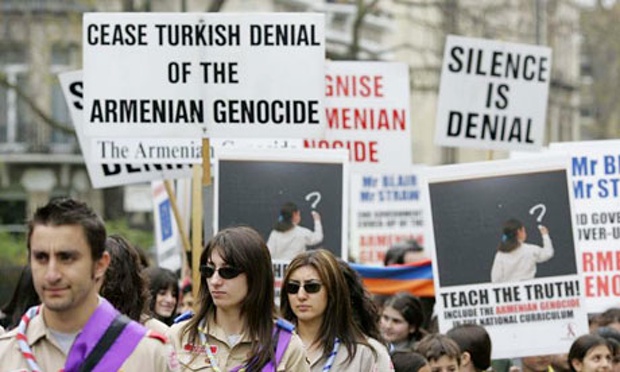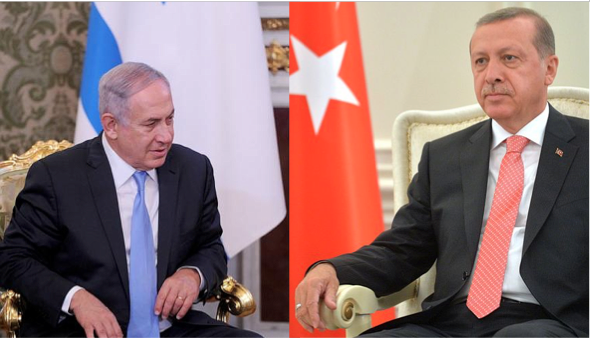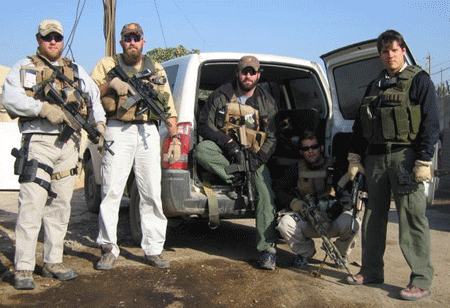Events have conspired to elevate the 100th anniversary of the Armenian genocide, already a controversial and emotional issue, into one with high international stakes, as Turkey’s failure to recognize this tragedy has become an important diplomatic bargaining chip in the fight against ISIS.
From 1915-16, Ottoman soldiers massacred and deported hundreds of thousands of Armenians, ultimately resulting in the deaths of up to 1.5 million people. Controversy over classification of the killings as “genocide” has been an inflammatory issue for Armenians and Turks ever since.
Armenia and its sizable diaspora have consistently pressured other countries to officially recognize the genocide. Despite pressure reaching an all-time high in 2015, many NATO members see Turkey as a vital actor in the fight against ISIS and refuse to endanger that partnership by recognizing the 1915 killings as a genocide. Only 26 nations have done so, despite its nearly unanimous recognition by scholars and historians.
With Ankara having recently taken a more active role in the fight against ISIS, the victims of the 20th century’s first genocide must continue to wait for justice.
The Turkish government does not deny the 1915 killings occurred. However, it sharply rejects classifying the events as genocide. Turkey claims that the killings and deportations of Armenians were a by-product of civil war and were necessary to preserve the crumbling Ottoman Empire.
Turkey has numerous reasons to deny the genocide. Many Turks view accusations of genocide as a continuation of the historic Christian-Muslim rivalry, in which Christian nations characterized the Turks as barbarians. Accusations of genocide are also seen by some Turks as an attempt to equate the founding fathers of modern Turkey—many of whom were involved in the massacre—with the Nazis, a comparison that would tarnish the image of the country’s national heroes.
More practically, revising Ankara’s stance on the Armenian issue could risk reopening official histories, many of which have been falsified, and raising questions about Turkey’s current repression of other minorities like the Kurds.
Out of recognition of Turkey’s growing regional prominence, many countries have opted not to contest Ankara’s reticence. While Russia and France have risked their relationship with Turkey to recognize the genocide, others, such as the United States and Israel, a state built in the wake of genocide, have not taken that risk.
On the 2008 campaign trail, Barack Obama promised to use the word “genocide” to describe the 1915 massacres. Indeed, as a senator, he declared that “the Armenian genocide is not an allegation, a personal opinion or a point of view, but rather a widely documented fact supported by an overwhelming body of historical evidence.” Yet he still has not lived up to his promise almost seven years into his presidency. Preserving relations with Turkey has trumped pressure from America’s Armenian community.
Home to the world’s second largest Armenian diaspora, the U.S. has frequently wrestled with genocide recognition. Armenian lobby groups began pushing for recognition during the 1980s. In 2000, Congress attempted to adopt a statement of recognition, but Turkish threats of sanctions and the closure of NATO military bases stymied the effort.
In an April 2015 speech on the events of 1915, Obama omitted the word “genocide” as part of an evident attempt to persuade a reluctant Turkey to participate in America’s evolving campaign against ISIS.
These efforts may have at last paid dividends. Turkey and the U.S. recently announced a deal that permits American warplanes to use two Turkish air bases for bombing ISIS targets in Syria in exchange for Washington’s assistance in creating an “ISIS-free zone” along the Syrian-Turkish border. Obama officials have described the deal as a “game changer,” as American planes will no longer have to travel from the Arabian Peninsula to launch attacks.
As Turkey is the only Muslim majority nation in NATO and possesses the second largest military among all member states, Washington would like it to assume a larger role in regional security initiatives. Yet Ankara fears fighting ISIS would effectively strengthen Bashar al-Assad’s regime in Damascus and embolden Turkey’s substantial Kurd population, elements of which have been fighting for their own autonomous state for more than 30 years.
Experts believe that Turkey’s failure to recognize the genocide stifles the nation’s democratic development. Failure to accept blame for past wrongs and to absorb harsh criticism, as well as continued efforts to suppress debate on this issue, discourages the growth of a healthy political society.
A demonstration of contrition would not only go a long way toward mending Turkish-Armenian relations, but would signal societal maturity in Turkey. Recognition of the genocide would distance the new Turkey from its history of one-party military rule and illustrate Ankara’s commitment to democratic leadership in the Middle East.




